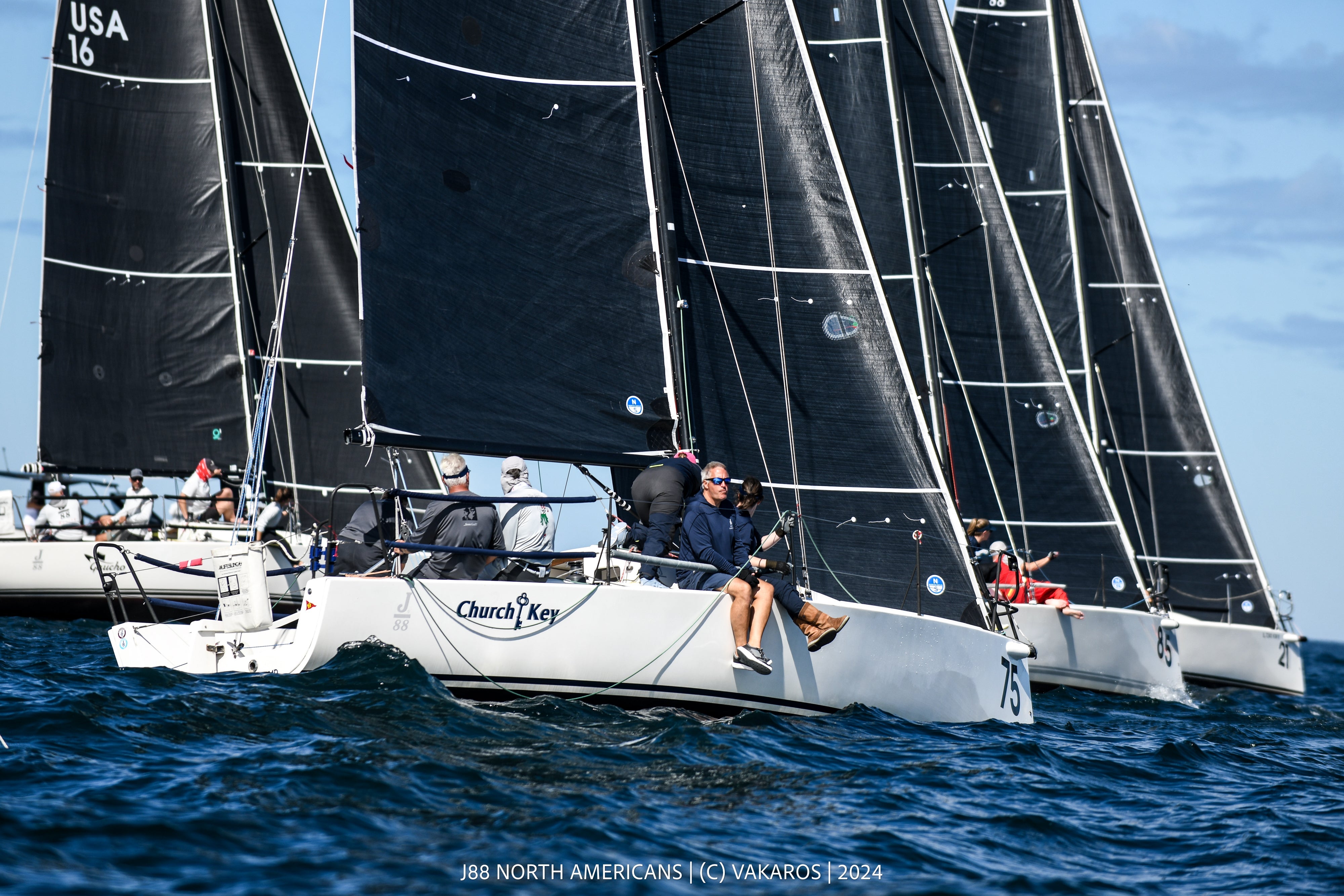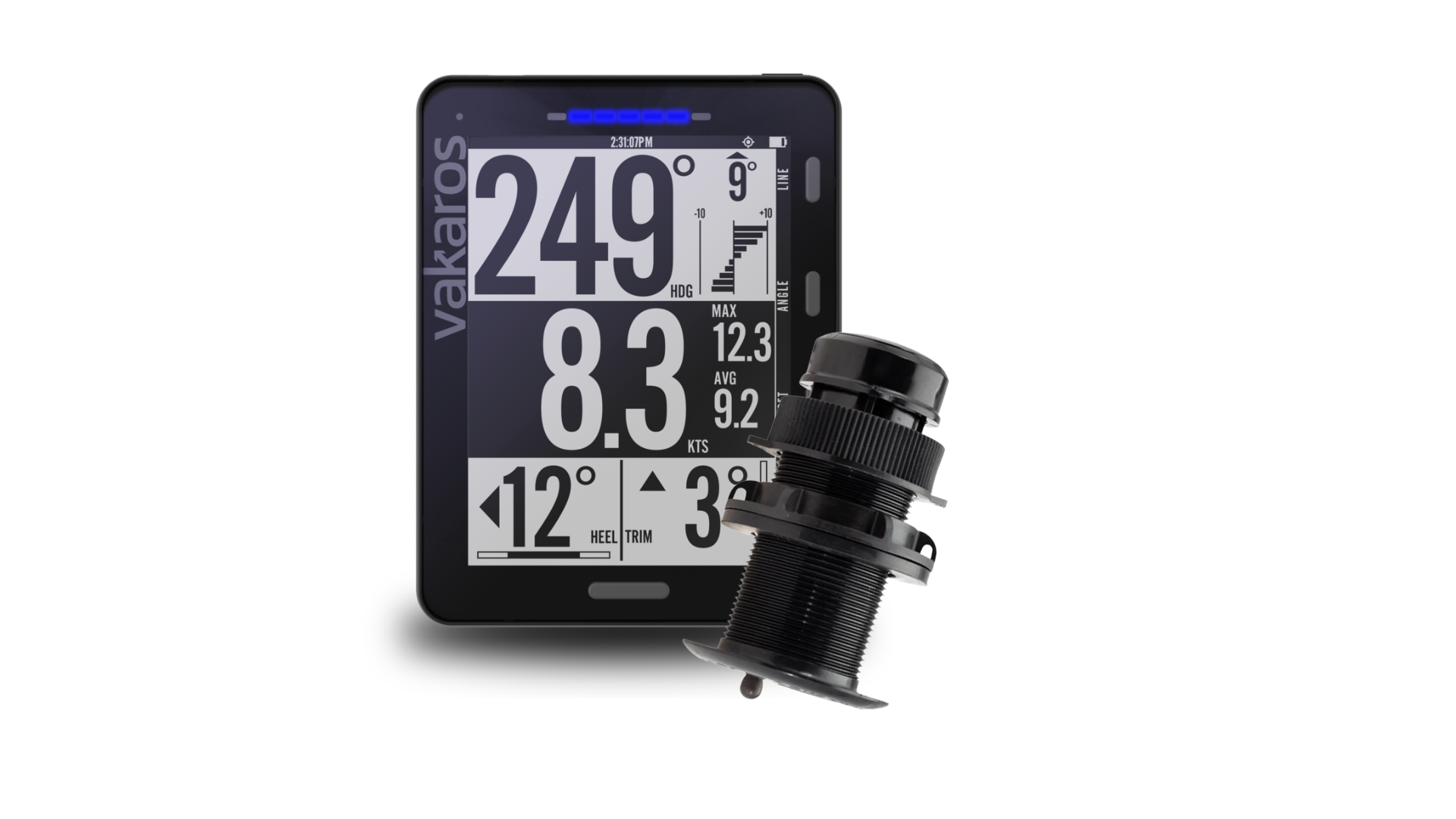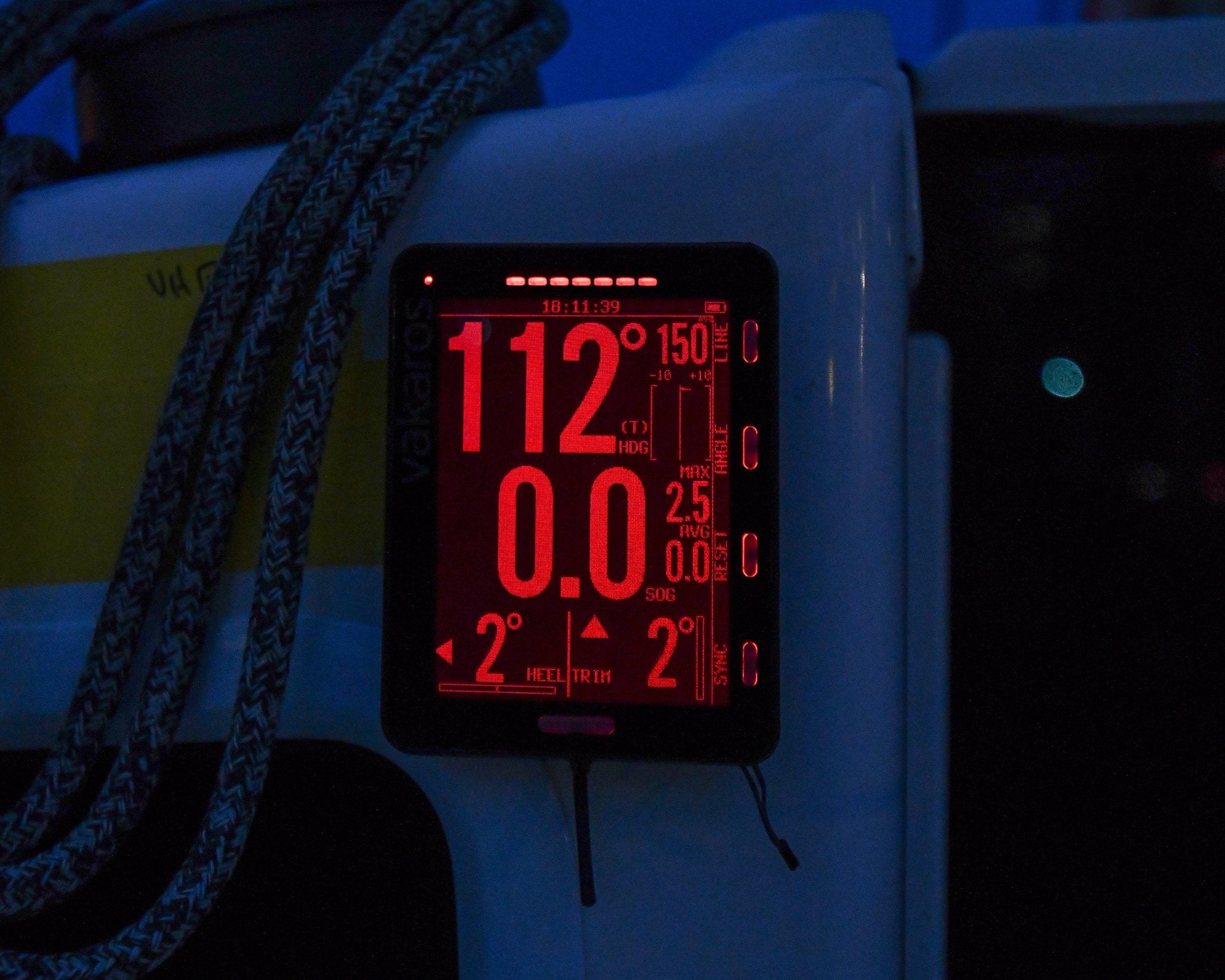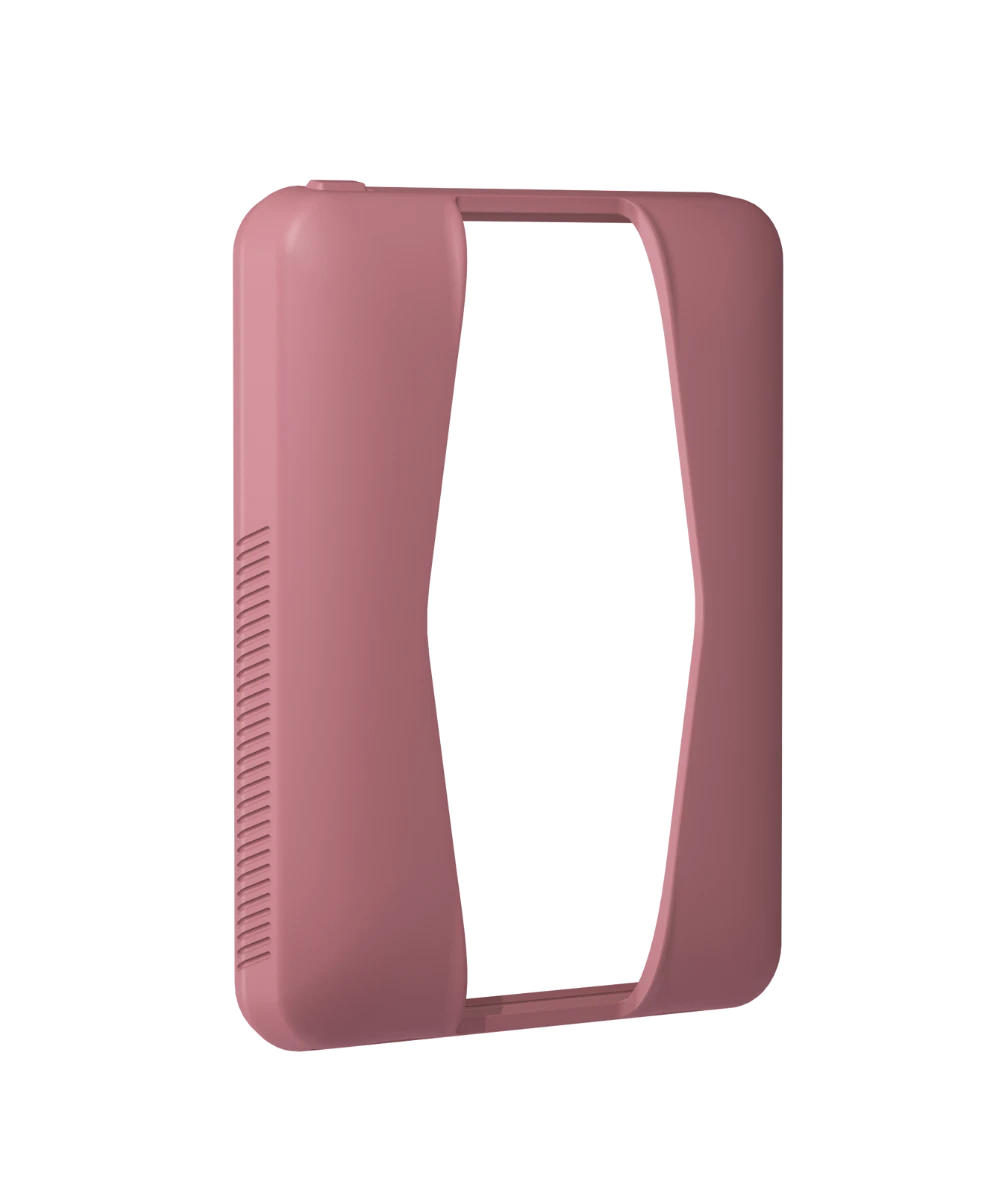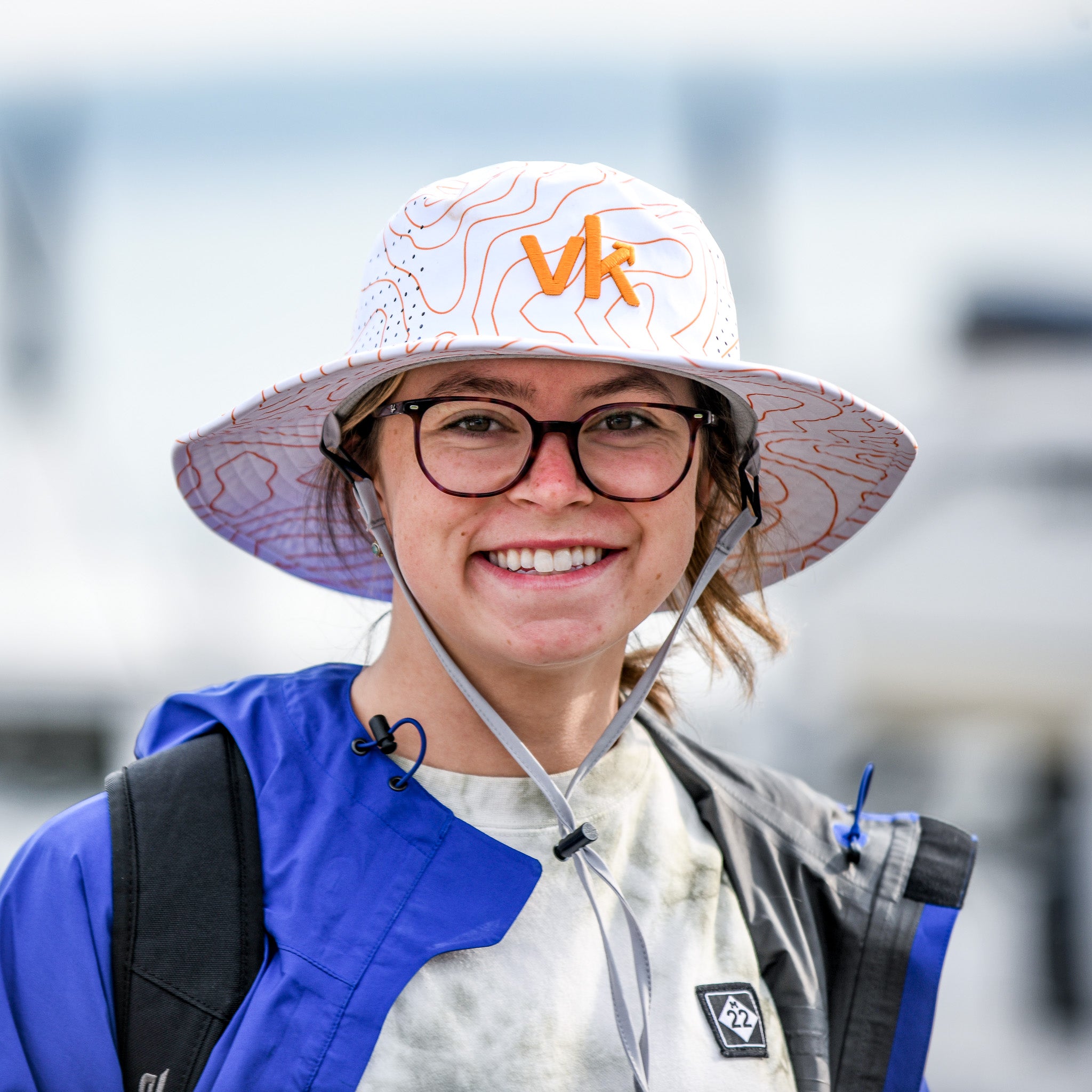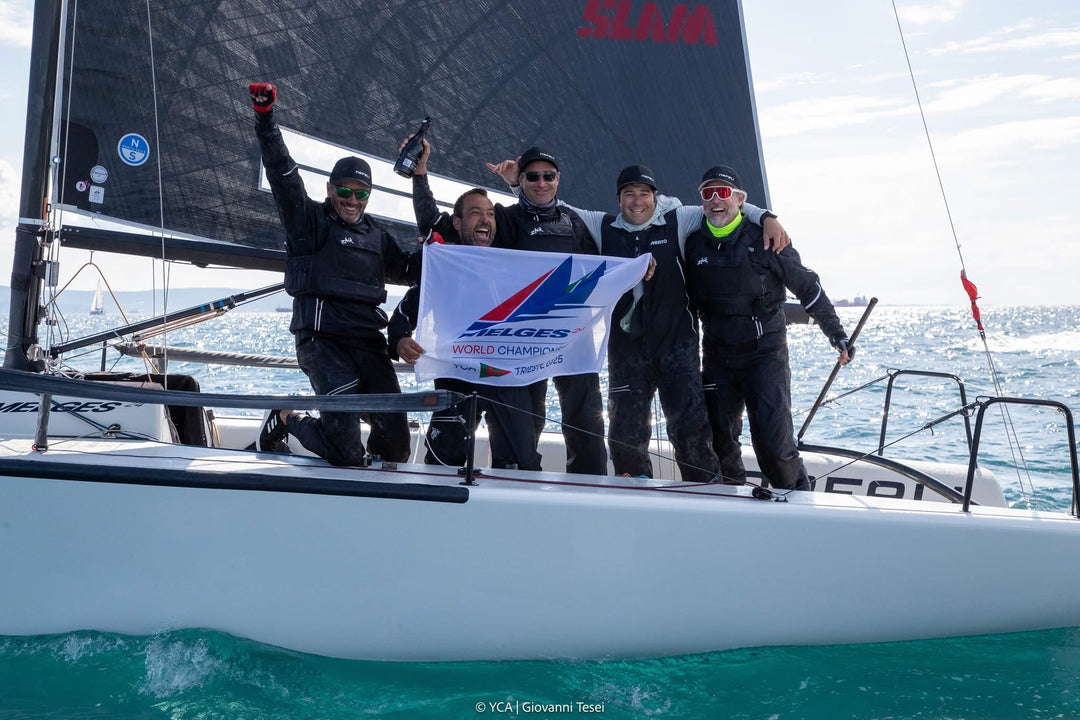Vakaros: From a basement in Atlanta to the forefront of instrumentation and race management

Todd Wilson and Jake Keilman started Vakaros in 2016, driven by their mutual passion for sailing and a desire to innovate within the sport. Having met through F18 sailing, they recognized the need for technological advancements to enhance their sailing experience. In particular, they faced challenges getting up to speed in the F18 class, lacking sailing partners and struggling to optimize their performance both upwind and downwind.
At the time, the instruments available for smaller boats were limited in capability and performance, and suffered from basic design flaws, including displays that couldn’t be read while wearing polarized sunglasses. As engineers, Todd and Jake saw an opportunity to develop an all-in-one instrument that could provide real-time data on speed, direction, heel, trim, and other critical metrics. They began exploring advancements in other sports, such as running and cycling, where newer technologies were emerging to address similar issues encountered in sailing. Unlike activities like running and cycling, where smartphones and watches could be utilized to track performance, sailing lacked a similar solution. While instruments could collect data during sailing sessions, a computer was required to download the data afterwards, rather than sending it directly to a smartphone. These limitations highlighted a significant opportunity for innovation within the sailing community.
 Todd, writing early Atlas 1 code
Todd, writing early Atlas 1 code
It took several years before Todd and Jake successfully developed the Atlas and brought a tangible product to fruition. During this time, both Todd and Jake had full-time commitments – Jake was pursuing graduate studies while Todd worked for a software engineering company. Conceptualizing the idea and determining its form and function proved to be a considerable challenge. However, their ultimate goal was to create a flexible product capable of continuous development and improvement over time. They envisioned a powerful tool that could incorporate new features and adapt to continuously evolving needs. Central to this vision was the implementation of a large, graphical display, allowing new features to be added to the instrument over time via software updates. This proved to be a significant technical development, as existing sailing instrumentation featured fixed character displays with limited capabilities. Jake in particular believes that without this innovative display, their project may not have progressed as far as it did.
In 2018, they finalized the concept and made significant progress in aligning the design. Working out of Todd's Atlanta basement, and with limited funds, they decided to launch a Kickstarter-style campaign as the best way to get the product to market. They weren't sure if it would work, but they figured it was worth a shot. Sailors pledged money in advance, in exchange for a discount, which allowed the team to move forward with production.
With limited resources, they worked to find manufacturing partners to provide components, while taking on the final assembly, testing, and calibration of the finished product themselves
 Jake, working on Atlas 1 assembly
Jake, working on Atlas 1 assembly
The pre-order campaign, launched in April 2018, surprisingly generated quick orders from people who had only seen renders and basic info on the website and seeing the demand for a modern, all-in-one instrument. Todd and Jake were thrilled with the response, but quickly turned their attention to delivering on the promise of the Atlas.
Like many crowd-funded projects, there were delays in delivering the first Atlas 1 units. Manufacturing and supplier issues drained resources and made it a struggle to bring the product to market, leading to moments of doubt for Todd and Jake. Despite the delays, they delivered the first Atlas 1 units in 2019 to positive reception from customers. Todd and Jake will always be especially grateful for those early Atlas 1 pre-order customers, without them, Vakaros wouldn't exist as it does today.
 Atlas 1 assembly line, 2018
Atlas 1 assembly line, 2018
As the company grew, new investments came in. This prompted them to recognize areas for improvement in the Atlas, particularly in GPS technology and the introduction of RaceSense, a concept they began contemplating in 2018. They understood that achieving these goals would require advancing their technology further and seizing the opportunity to create a new device that could be manufactured more easily and at a larger scale. This led to the development of the Atlas 2. In August 2021, Vakaros officially launched the Atlas 2, which hit the market in May 2022. The Atlas 2 represents an major step forward over its predecessor, boasting improved sensors, battery life, and the addition of an innovative LED bar. Moreover, it was designed from the beginning to accommodate RaceSense technology, with a highly accurate dual-band L1+L5 GNSS receiver and long range radio for reliable on-the-water communications. It took them another year to fully develop and launch RaceSense, which they successfully did in January 2023. With over a 100 events, including multiple World Championships powered by RaceSense, the team at Vakaros is thrilled to see sailing embracing modern race management technology.
 Early 2018 test of elements of RaceSense with Dave Ullman and Giulia Conti
Early 2018 test of elements of RaceSense with Dave Ullman and Giulia Conti
The name "Vakaros" was chosen as a reference to sailing traditions, drawing inspiration from the Lithuanian God of westerly winds. Most importantly, vakaros.com was an available website domain. The choice wasn’t without consequences, and it may have negatively impacted the career of an aspiring DJ who happened to have the surname Vakaros–sorry George! From its inception, Vakaros attracted global interest, with its very first order coming from Switzerland. While initially more prominent in the US market, the company has since expanded its reach to a worldwide audience.
 First OCS call made by RaceSense, January 2023
First OCS call made by RaceSense, January 2023
In terms of team members, Marc has been with the company the longest, overseeing firmware development. He's responsible for crafting the software that powers the Atlas, including core functions and RaceSense. Tyler joined the team in 2020, focusing on app development from the ground up, including Vakaros Connect, Race Control, and internal applications. The core engineering team has remained intact for several years now. Tiffany has been involved since day one, contributing on various fronts and across different areas of operation.
Doug joined the team in June 2022, handling marketing efforts, building the brand, while Will took charge of sales, establishing a sales pipeline. Nico came aboard in November 2022 to assist with European sales.
Sara began operating within the company in 2022, joining the support team, while Francesca joined the marketing team in 2023. Drew is the newest addition to the team, joining in June 2023.
As Vakaros continues to evolve and expand, one thing remains constant: a commitment to pushing the boundaries, empowering sailors worldwide.




